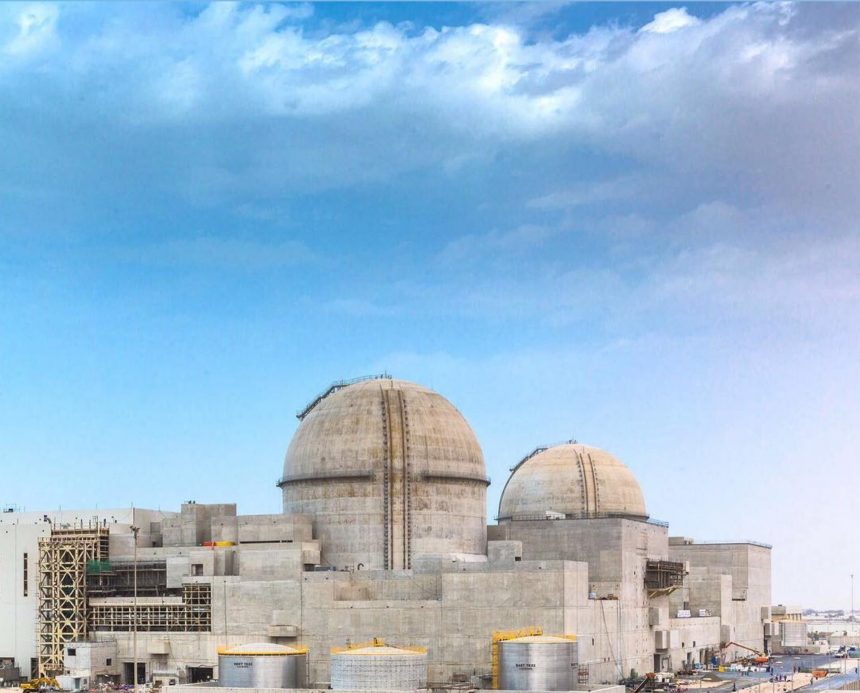The Barakah Nuclear Energy Plant in Abu Dhabi is expected to produce 40 terawatt-hours of electricity annually with all four reactors now operational, as announced by the Emirates Nuclear Energy Corporation (ENEC). The reactors were constructed by Korean engineers.
This nuclear plant will address 25% of the electricity demands in the desert Gulf state, essential for cooling needs due to extreme temperatures year-round. In fact, air conditioning requirements in Abu Dhabi almost match the annual consumption of New Zealand, according to ENEC.
Related: Innovative ways to utilize air conditioner water
Furthermore, the nuclear power generated will support key industries in the UAE such as Abu Dhabi National Oil Company (ADNOC), Emirates Steel, and Emirates Global Aluminium, ENEC confirms.
The Barakah plant, meaning “blessing” in Arabic, commenced operations in 2020.

Sheikh Mohamed bin Zayed Al Nahyan, the Emirati President, praised the completion of the Barakah plant as a significant step towards achieving net zero emissions.
“Our focus remains on ensuring energy security and sustainability for the benefit of our nation and future generations,” he stated.
While the International Atomic Energy Agency confirms that the plant will need to be decommissioned in approximately 60 to 80 years, the UAE aims to diversify its energy sources from oil to nuclear and renewable energy.

Although the UAE has traditionally relied on oil production, the completion of the Barakah Nuclear Energy Plant signals a shift towards cleaner energy sources. The country also boasts one of the largest solar power plants to complement its energy portfolio.






